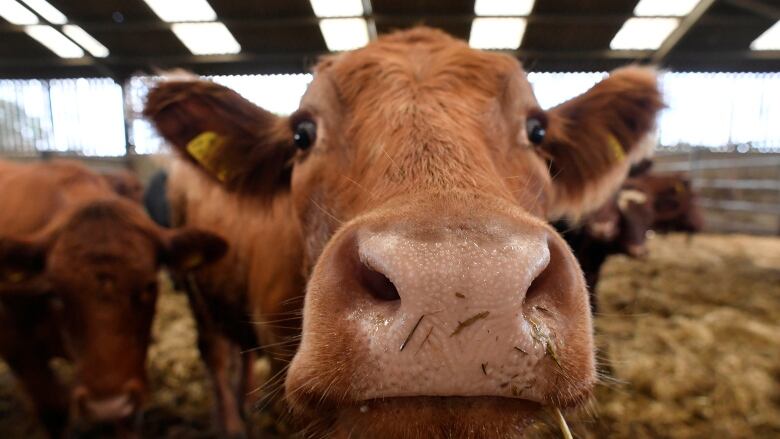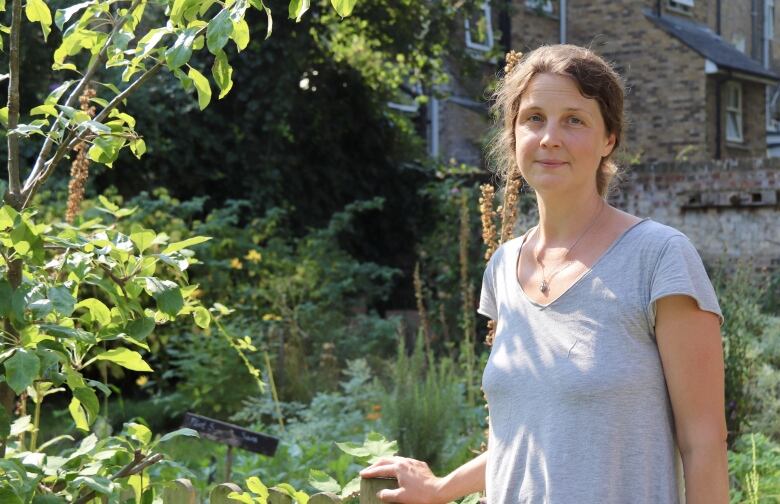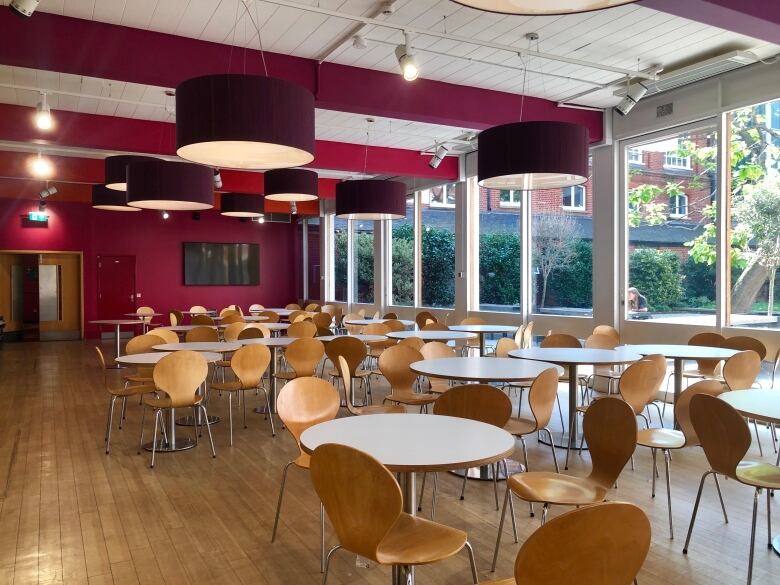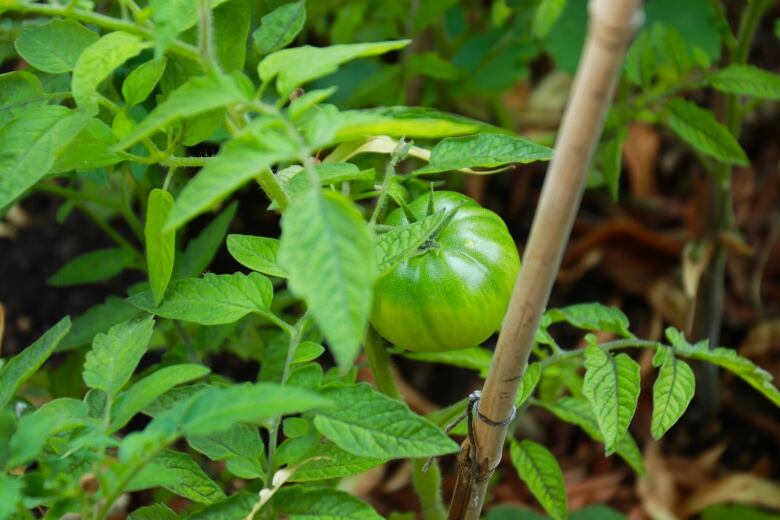Why a U.K. university is banning beef in an attempt to fight climate change
Goldsmiths in south London looking to boost environmental sustainability on campus

A U.K. university won't be serving any more beef-based burgers or burritos in its dining halls as it looks for creative ways to become carbon neutral by 2025.
The ban on all beef products at Goldsmiths, University of London, made headlines as the liberal arts institution in south London revealed its plans to boost environmental sustainability on campus.
Prof. Ros Gray, who helps to develop the new climate action policies at Goldsmiths and co-ordinates its flourishing community garden, said she didn't realize how much attention the beef ban would receive.
"Beef is a very carbon-heavy food and so we really felt that that was important to campaign on."
Vetoing beef was logical for Goldsmithsbased on the reasoning of several climate action studies.
The latest Intergovernmental Panel on Climate Changereport says 23 per cent of the world's land used by humans is contributing to climate change.
The report suggests balanced diets consisting of plant-based foods and "animal-sourced food produced sustainably in low greenhouse gas emission systems present major opportunities for adaptation to and limiting climate change," Debra Roberts, co-chair of an IPCC working group, said in a statement.

But some farmers in the U.K. have a beef with the move.
"Grass-fed beef and lamb producers are at their wit's end because the market for beef and lamb has fallen due to actions of institutions," said Patrick Holden, a farmer in Wales and founding director of the Sustainable Food Trust, a U.K. registered charity.
Grass-fed cattle and lambs are part of the process of reducing carbon emissions, he said, while feedlot beef "is directly linked to our insatiable desire for the cheap grains, which we are feeding to our chickens, pigs and industrially managed dairy cows."
Sustain, a registered charity in the U.K. that urges farmers to adopt grass-fed cattle and lamb production, also warns of the problems it sees around a blanket restriction on beef.
"The problem with beef is that it's far more complicated than saying that beef has the largest greenhouse gas footprint," said Sustain campaign co-ordinator Vicki Hird.
"Beef production has an enormous impact both on the emissions from the system, but also whether the system can actually act as a carbon sink."
- WHAT ON EARTH?Meat and the environment: Do Canadians know what's at stake?
- WHAT ON EARTH?Cows and climate change: A closer look
She advises using a "whole menu approach" to examine where all food on university campuses is coming from.
"If the [pork or chicken] is intensively reared, then it will probably be fed by feeds that are coming from overseas ... which can have an extreme impact on biodiversity and greenhouse gas emissions," Hird said.

At Goldsmiths, Gray understands there are some meats such as grass-fed beef in the U.K. that may lower carbon emissions, but in reality, "a lot of the high-quality meat is just not affordable for a student budget."
Students at the university supported the ban in a unanimous vote, but there still seems to be a bit of leeway when it comes to eating beef.
"We sold beef burgers about once a month in the cafeteria. That's being stopped as part of a wider plan. No one's gonna get chased off campus if they come with a beef burger," said Joe Leam, the Goldsmithsstudent union president, in a tweet.
Goldsmiths is not the only U.K. university taking beef off its menus in its dining halls. The University of Cambridge removed all beef and lamb from its menus in 2018. Other universities are putting emphasis on more plant-based options as part of sustainability plans.
In Canada, universities haven't made any strict bans, but some have made adjustments to their menus by introducing meatless Mondays into their dining rotations, including Simon Fraser, McGill and Queen's universities.
This year, the University of British Columbia was ranked No. 1 in the Times Higher Education University Impact Rankings with Laval University, University of Waterloo and York University ranked in the top 20 for their climate action practices and research.
While Goldsmiths' ban is fairly rare among institutions, Gray said there is a "symbolic importance" and "it is actually important to take a stand sometimes."

But these universal bans can trigger warnings about the impact of restricting individual choice.
"It can be dangerous as it has the potential to backfire" to the point where these restrictions can be used to make the public feel that "climate action requires great personal sacrifice," climatologist Michael Mann, a professor at Penn State University, said in an email to CBC News.
Mann, who has contributed to several IPCC reports and studies the climate and land use, said that meat consumption represents six per cent of total carbon emissions, and individuals should try to make changes in their diets if they can, but he cautions about institutional restrictions on food groups.
"The most important thing that institutions of higher learning can do is decarbonize their infrastructure," said Mann. That might include addressing an institution's power supply or transportation usage.
Goldsmiths is tackling its infrastructure as well. The university has made a commitment to install solar panels and will switch to entirely renewable energy and revitalize its curriculum to look further at the role of individuals and organizations in reducing carbon emissions.
Goldsmiths also plans to change its menus to align with the EAT-Lancet Commission'splanetary diet, which includes no beef and a reduced intake of meat.
Gray said the community program has introduced her to many students and staff who are passionate about making their carbon footprints smaller through multiple actions.
She's excited to see how the university will continue to act on addressing climate change."I think there are lots of possibilities."












_(720p).jpg)


 OFFICIAL HD MUSIC VIDEO.jpg)
.jpg)



























































































